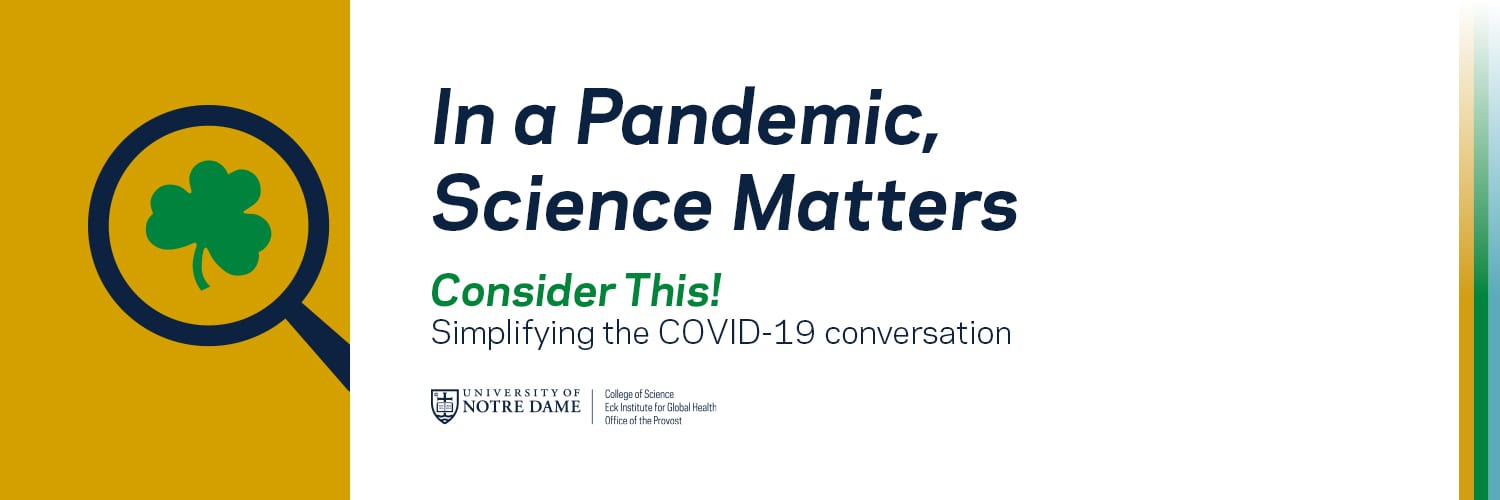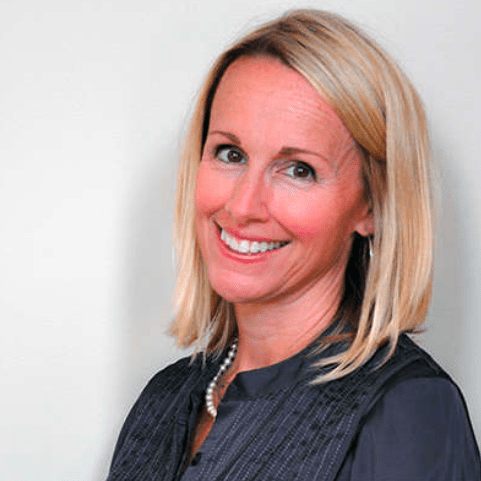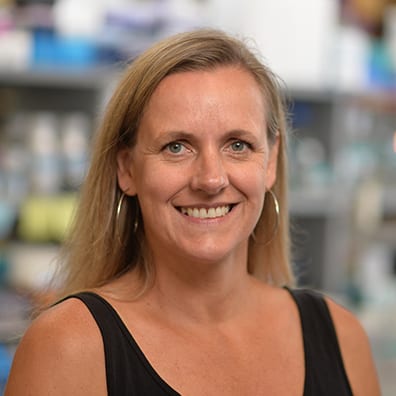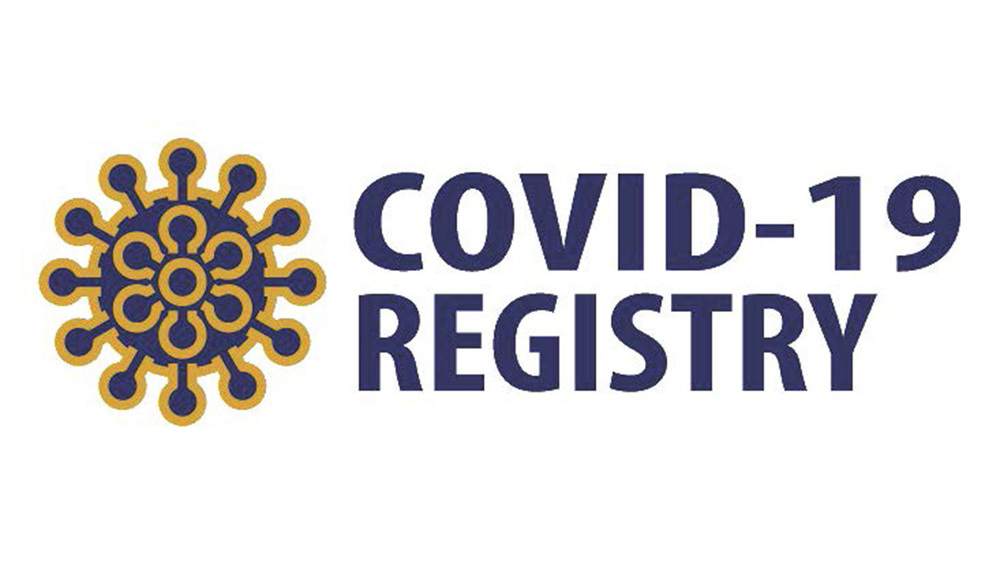In a Pandemic, Science Matters

This session will include a brief introduction to SARS-CoV-2 biology, a presentation of the current data in our community, and a conversation around recent headlines and rumors. Speaker Dr. Marie Lynn Miranda, Charles and Jill Fischer Provost of the University of Notre Dame, will discuss Indiana’s COVID-19 Registry and a new University of Notre Dame initiative, “Moment to See, Courage to Act.”
The views presented are the views of the hosts and guests, not the views or policies of the University of Notre Dame. Information provided is not intended to serve as, nor should be interpreted as, specific medical advice or a substitute for the advice of an individual’s personal health practitioner.
Meet the Faculty Hosts
Presented by Heidi Beidinger-Burnett and Mary Ann McDowell

Heidi Beidinger-Burnett is the Director, Eck Institute for Global Health Masters Program, Associate Professor of the Practice, Department of Biological Sciences, and President of the St. Joseph County Board of Health. She is a public health expert and social scientist with a background in health, policy, community-based research, and leadership with a focus on lead poisoning prevention, HIV, and infant mortality. Beidinger’s passion and desire to improve the quality of life for our community is the driving force behind her work.

Mary Ann McDowell is an Associate Professor of Biological Sciences and a member of the Eck Institute for Global Health. She is an infectious disease and immunology expert. Her research program takes a combinatorial approach to investigate immunology, host cell-biology, pathogen diversity and insect vector biology, using both laboratory models and field-based studies. She teaches General Biology, Immunology, and Immunology of Infectious Diseases.
Introduction to SARS-CoV-2
Presented by Mary Ann McDowell
This video introduces scientific terms and concepts that will be discussed through the series, including DNA, RNA, protein, antigens, and pathogens. In addition, an explanation of the coronavirus family, how cells are made and the SARS-CoV-2 life-cycle is presented.
Notre Dame-based research coalition launches Indiana COVID-19 Registry
Presented by Notre Dame News

In an effort to track the spread and impact of the coronavirus and better inform decision-making at the state and local levels, research leaders at the University of Notre Dame are leveraging the University’s membership in the Indiana Clinical and Translational Sciences Institute (CTSI) and one of its key programs, All IN for Health, to launch the Indiana COVID-19 Registry.
“Understanding how COVID-19 is affecting the health and well-being — physical, mental, and economic — of Indiana residents is critical to our battle against this formidable foe,” said Marie Lynn Miranda, the lead scientist on the registry and the Charles and Jill Fischer Provost at Notre Dame.
Designed as a complement to state and county dashboards, the Indiana COVID-19 Registry will measure economic and health impacts, anticipate health care needs, understand behavior in response to policy changes, and identify popular and effective sources of information.
The registry is open to anyone 18 years of age or older and involves introductory and follow-up surveys. The introductory survey asks about background and medical history, mental health, hand-washing habits, household size, recent travel history, and health status, among other topics. It takes about 10 minutes to complete and is available in English and Spanish. The follow-up surveys are shorter and will ask similar questions, allowing the registry to track changes in impacts and behavior over time.
The registry will include an online dashboard with information about symptoms and testing, mental health impacts, exposures, public health practices, and household impacts at the state and county levels. The dashboard will be made public once adequate data are available. At no time will the dashboard reveal identifying information on registrants.
Data from the registry will be stored in a highly secure system built and maintained by the Center for Research Computing at Notre Dame. Results will be published and updated online, excluding information that could be used to identify any respondents.
“The Indiana CTSI is in a unique position to connect with people across the state, which will help us get more perspective about this unprecedented pandemic,” said Dr. Sarah Wiehe, co-director of the Indiana CTSI. “By understanding the needs of our communities now, as well as overtime, we will be better prepared to improve health through research in the future.”
The Indiana COVID-19 Registry is modeled on the COVID-19 Registry at Rice University, where Miranda served as professor of statistics from 2015 to 2020. Miranda was the lead investigator for the Rice registry during her time there. She is now the lead investigator for the Indiana registry.
The ongoing COVID-19 Registry at Rice revealed a lack of screening for the coronavirus and disparate economic impacts based on race among Houston-area residents. At the same time, it showed residents engaging in behaviors such as social distancing and hand-washing to slow the spread of the virus.
For more information or to participate in the registry, visit covreg.crc.nd.edu.
Originally published on news.nd.edu by Erin Blasko on September 1, 2020.
View the Event
Presented by Heidi Beidinger-Burnett and Mary Ann McDowell
Subscribe to the ThinkND podcast on Apple, Spotify, or Google.
Featured Speakers:
- Heidi Beidinger-Burnett, Director, Eck Institute for Global Health Masters Program; Associate Professor of the Practice, Department of Biological Sciences, University of Notre Dame; President of the St. Joseph County Board of Health
- Mary Ann McDowell, Associate Professor of Biological Sciences and Member of the Eck Institute for Global Health, University of Notre Dame
- Marie Lynn Miranda, Charles and Jill Fischer Provost and Professor of Applied and Computational Mathematics and Statistics, University of Notre Dame.
Additional Resources
Presented by Heidi Beidinger-Burnett and Mary Ann McDowell
- A Goal Worthy of Our Commitment, Inside Higher Ed. by Viviana Geron and Marie Lynn Miranda
- Understanding the pandemic: A 10-week webinar symposium hosted by the Indiana Pandemic Information Collaborative to break down the COVID-19 outbreak for the lay person
- This Week in Virology Webcast: Bi-weekly cast of virologists discussion COVID-19 and coronaviruses
- Letters to Humans: Letters from the desk of Dr. Gregory Jacobson breaking down the science of the global pandemic for a non-medical crowd
- Detailed Coronavirus Life-cycle: Video describing the details of the SARS-CoV-2 life-cycle by Catalyst University
- Indiana COVID-19 Registry
